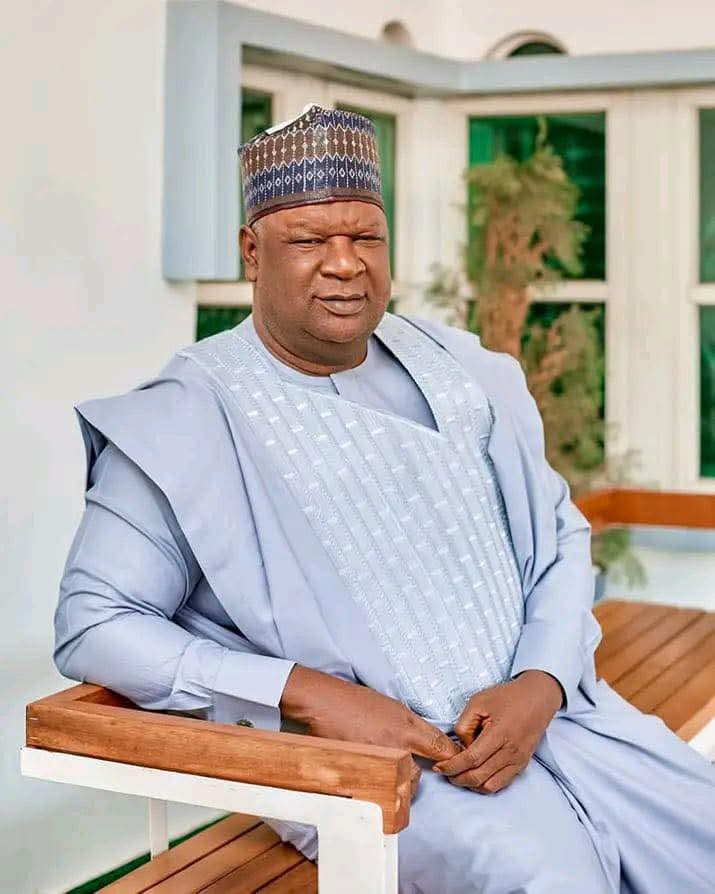The Netherlands government has approved 400, 000 Euros for the Federal Government to embark on the National Livestock Transformation Programme (NLTP) in Nasarawa State.
Minister of Agriculture and Rural Development, Alhaji Sabo Nanono, disclosed this on Monday, at the Government House, Lafia, while on a two-day working visit to Nasarawa State.
Alhaji Nanono, while noting that the country has been toying with the issue of livestock development, which resulted into misconceptions about the NLTP, confirmed that funding for the project has been approved by the Netherlands government and that the Federal Government will embark on a pilot project in Nasarawa State.
The Minister further disclosed that with Nigeria having over 33trn varieties of livestock ranging from cattle, pigs, poultry, sheep, goats, camels, horses, among others, the country cannot afford to play with this national assets.
Commenting on the purpose of his visit to Nasarawa State, the agriculture Minister, said he was in the state to supervise five rural roads built by his ministry across the state.
While highlighting on the significance of agriculture to the development of the country, Alhaji Nanono lamented however that the sector has been neglected through the years, except with the coming of the President Muhammadu Buhari administration, which is priotizing agriculture.
The Minister pointed out that with the world now focusing on agriculture, it has become paramount that the country appreciates the opportunities inherent in the sector, especially that Nigeria’s growing population is pegged at 400m in the next 30 years.
He said his ministry attached so much importance to Nasarawa State, in terms of agricultural development, as well as its potentials, ranking the state first in terms of diversity of various agricultural products, with potentials not only for promoting and ensuring food security in the country, but also for export.
The Minister added that Nasarawa State has also been selected among states that will benefit from the agricultural mechanization policy of the Federal Government, with arrangement finalized for the pilot mechanization in 632 LGAs completed.
“Nasarawa State has the potential for creating a strong relationship between agriculture and the industrial sector. And we have already started seeing some signs. And we are going to promote it in that regard,” the Minister stated.
He announced that as part of the FG’s programme of economic sustainability, for which N600bn was approved as support for small scale farmers, his ministry has registered over 78, 000 farmers in the state, with another 23, 000 registered for the dry season farming covering about 2,400 hectares of land.
The Minister further disclosed that the FG will engage youths, in collaboration with universities for the production of export crops, stressed that Nasarawa State has been slated to produce soya beans for export.
Responding, Nasarawa State Governor, Engineer Abdullahi Sule, said the vision of his administration was perfectly in line with that of President Muhammadu Buhari, as well as the Federal Ministry of Agriculture and Rural Development, as it related to food security.
According to Engineer Sule, in Nasarawa State, agriculture is seen as a business, an opportunity for employment and industrialization.
The Governor noted that with over 80 percent of the population of the state involved in one form of agriculture or the other, coupled with his knowledge of agriculture from his experience at the Dangote Sugar Refinery, he is convinced that Nasarawa can be another India or Brazil, when it come to agriculture.
While thanking the Minister for selecting Nasarawa State for the youth empowerment scheme for the production of soya beans for export, Engineer Sule appealed to the ministry to also consider the production of yams and cassava for export.
The Governor identified four major agricultural companies in the state, which when fully operational, will boost the economic development of the state.
He explained that Dangote Group acquired 68, 000 hectares of land, which will translate to 400, 000 metric tons of sugar, representing one-third of the sugar consumption of the country, in addition to generating 96 megawatts of power, as well as 2500 litres of ethanol.
“But the most importantly, the project will generate employment for over 30, 000 for our people,” he said.
The Governor added that other companies like Olams, sitting on 10, 000 hectares but cultivating 5000 hectares, has over 2,500 employees, the Azman Rice, sitting on 14, 000 hectares, with the Flour Mills of Nigeria also concluding arrangement to take over 20, 000 hectares of land in Toto Local Government Area, setting aside 10, 000 hectares for rice production and another 10, 000 for cassava.
“If we have these four majors, then we are going to concentrate more on our outgrowers that will be able to feed these major operations,” Engineer Sule said.





